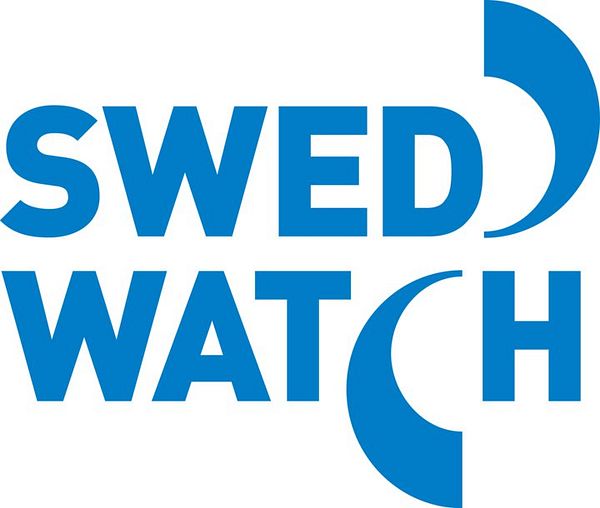
Press release -
New report reveals EU pesticide double standards causing harm in Kenya
A new report by Swedish NGO Swedwatch highlights how European companies export pesticides banned within the EU to countries outside the union, where they harm workers and ecosystems. Focusing on Kenya as a case study, the report exposes a global pattern of toxic double standards — and calls for a long-overdue ban on the export of these pesticides and demand European policymakers, as well as food and pesticide companies, to take responsibility.
-It is deeply troubling that chemicals considered too dangerous for Europeans are still being exported from Europe to the rest of the world. This practice undermines human rights and risks having disastrous impacts on the environment says Olof Björnsson at Swedwatch, author of the report.
The report, based on research conducted by Swedwatch and the Kenya Organic Agriculture Network (KOAN) in partnership with the Swedish Society for Nature Conservation (SSNC) outlines how hundreds of thousands of tonnes of pesticides are exported from the EU to markets abroad every year.
Many of these substances are prohibited for use within the EU due to their risks to people and nature. Yet current EU legislation still permits their production and export – a striking example of Europe’s double standards in environmental and human rights protection.
The report: Poision for profit - The cost of EU double standards on biodiversity, human health and livelihoods documents the widespread effects of this trade on Kenyan farm workers and communities. Those interviewed describe a wide range of symptoms, from eye and skin irritation to breathing problems and even fatal poisonings. Health professionals report increasing cancer rates in agricultural regions, while farmers note impacts on biodiversity, including the disappearance of bees and other pollinators. Other environmental impacts, such as contaminated water sources, are also being reported.
- The influx of pesticides banned in the EU directly undermines the health of Kenyans, damages the environment, and exposes a critical failure in regulatory bodies that should be protecting public safety, says Eustace Gacanja, Chief Executive Officer at Koan.
Kenya’s case reveals a wider global pesticide problem
The risks identified in Kenya are mirrored in other countries, often low- and middle-income ones, where fruits and vegetables are grown using pesticides that are manufactured in Europe but banned for use there. This includes a wide range of crops often destined for export to European markets.
-It is high time to phase out harmful pesticides and transition to sustainable agriculture that protects both people and the environment. The EU must take responsibility and stop the export of substances that are already banned within the Union, says Karin Lexén, Secretary General at SSNC.
Despite growing awareness and voluntary due diligence efforts, the report finds that neither pesticide producers nor food retailers have effectively addressed these impacts. The result is a persistent accountability gap, where local farmers bear the costs of unsafe exports while companies continue to profit.
-Pesticide manufacturing companies must end their complicity. They should accept full responsibility for their product's harm instead of offloading it onto farmers, and commit to a rapid, responsible phase-out of toxic chemicals, says Eustace Gacanja.
In June 2025, the Kenyan government took bold action by banning 77 highly hazardous pesticides and restricting over 200 others – a significant milestone in protecting people and ecosystems. Yet Swedwatch warns that responsibility must not fall solely on importing countries.
-Kenya’s decision shows real leadership, but it also highlights a failure on the part of European companies and the states in which they are based. It should never be up to affected countries to clean up the consequences of Europe’s harmful exports. EU-based companies and policymakers must ensure that no banned pesticides are produced or exported — anywhere, says Alice Blondel, Director at Swedwatch.
The trade in toxic pesticides is not only unethical but economically irrational. EU border controls regularly stop shipments containing excessive levels of these banned substances. When vegetable shipments from Kenya are rejected at EU borders, the costs of destruction are passed on to Kenyan farmers — those least responsible for the problem.
-Such an arrangement is both unjust and flawed, particularly when more sustainable alternatives are entirely achievable. If Europe manages to farm without these chemicals, so can the rest of the world, says Olof Björnsson at Swedwatch.
Swedwatch calls on companies and EU policymakers to take decisive action: ban the export of pesticides prohibited within the EU, strengthen Human Rights Environmental Due Diligence (HREDD) frameworks to cover entire value chains, and accelerate investment in agroecological farming.
-The solution is straightforward: stop exporting and expose people outside the union to what EU has already deemed too dangerous. Protecting people and the planet must come before profit, says Alice Blondel at Swedwatch.
Key recommendations, in short, from the report:
-To European policymakers: Ban the export of pesticides that are prohibited for use within the EU.
-To European policymakers: Implement mandatory Human Rights and Environmental Due Diligence (HREDD) legislation at the national and/or EU level that covers the entire value chain and all types of business relationships.
-To European producers of pesticides: Stop offloading the responsibility for your failed Human Right and Environmental Due Diligence (HREDD) onto farmers and urgently phase out the production and sale of harmful pesticides.
-To European companies sourcing agricultural products: Conduct risk-based human rights due diligence by prioritizing the most severe impacts connected to pesticides – across the supply chain.
-To Europeanpolicymakers: Strengthen and fund research into areas like agroecology, organic farming and sustainable pest management. Support initiatives to develop the use of these techniques – especially in low- and middle-income countries.
///////////////////////////////////////////////////////////////////////////
FACT BOX: METHODOLOGY FOR THE REPORT
The report stems from on-site and desk-based research conducted by Swedwatch and the Kenya Organic Agriculture Network (KOAN) in 2023 and 2024. KOAN is a national membership-based organisation that brings together producers, retailers, exporters, traders, NGOs and like-minded individuals and organisations dedicated to promoting organic agriculture.
KOAN contributed to the research, both as subject matter experts and by conducting and facilitating research in Kenya. The research is part of a larger project involving the Swedish Society for Nature Conservation (SSNC).
During the on-site research, a total of 40 individuals were interviewed. To protect their anonymity, Swedwatch does not disclose names or other characteristics of the participants. The interviewees included farmers, agricultural workers, the local salesmen of pesticides and other agrochemicals (known as agrovets) as well as their suppliers – the agrochemical dealers.
All interviewees are involved in Kenya’s agriculture and pesticide sectors and were selected to represent the diverse nature of the sectors. Additionally, Swedwatch visited a hospital and a clinic in two of the counties to gather the perspectives of health professionals. Swedwatch and KOAN also consulted experts and other relevant sources, including SSNC.
FACT BOX: HIGHLY HAZARDOUS PESTICIDES (HHPs):
Pesticides recognized as having particularly high levels of acute or chronic toxicity. Their use can cause severe or irreversible harm to human health and the environment. WHO has set out an internationally accepted classification system, that distinguishes between the more and the less hazardous.
FACT BOX: EU EXPORTS
Despite the EU banning or restricting many dangerous pesticides domestically, European companies export substantial amounts of these chemicals to countries with weaker regulations. In 2022, the EU exported 714,000 tonnes of pesticides, worth €6.6 billion. More than 122,000 tonnes of these pesticides were reportedly allowed for export despite being banned on European farms because of the dangers they pose to human health and nature. Much of the food grown using these pesticides is later imported back into the EU.
Topics
Safeguarding human rights and environment in business
Swedwatch is an independent, non-profit research organization dedicated to promoting responsible business practices and empowering rights holders. We achieve this by exposing the human and environmental impacts of unsustainable business operations and fostering collaboration between stakeholders to drive meaningful change.








